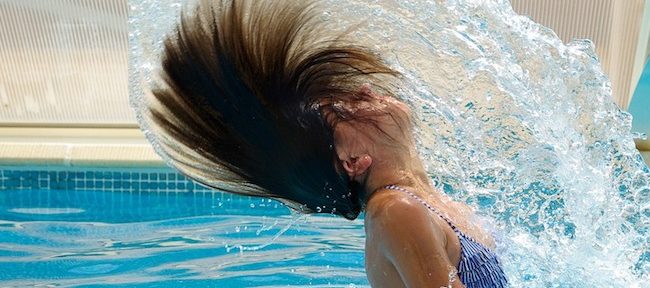VIA: Outbreaks of a parasitic diarrhea-causing infection linked to pools and water playgrounds doubled in the United States from 2014 to 2016, according to the Morbidity and Mortality Weekly Report issued Thursday by the Centers for Disease Control and Prevention.
“Cryptosporidium is a germ that can make people sick with diarrhea for up to three weeks,” Michele Hlavsa, chief of the CDC’s Healthy Swimming Program, wrote in an email. Nicknamed crypto, this parasite spreads through contact with the feces of an infected person.
|
Advertisement |

In 2016, the CDC received word of 32 outbreaks linked to swimming pools or water playgrounds in the US, compared with just 16 two years earlier.
In Ohio alone, nearly 2,000 people became sick from crypto last year. States are not required to report patient numbers, so the CDC does not collect totals.
There had been a downturn after 20 crypto outbreaks were reported in 2011; just 16 outbreaks were seen in 2012 and 13 in 2013.
Symptoms include watery diarrhea, stomach cramps, nausea and vomiting, possibly leading to dehydration.
“Parents can encourage their children not to swallow the water when swimming,” Hlavsa said, adding that swallowing even a single mouthful of contaminated water can cause illness. For this reason, parents should avoid buying pool toys that might encourage swallowing water, such as cups.
“Also, take kids on bathroom breaks every hour, and check diapers in a diaper-changing area and not right next to the pool,” Hlavsa said. “We all share the water we swim in, but we don’t want to share germs, pee or poop.”


